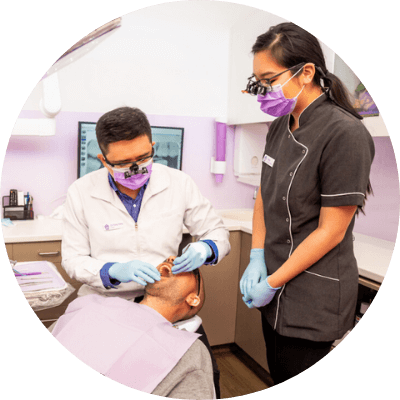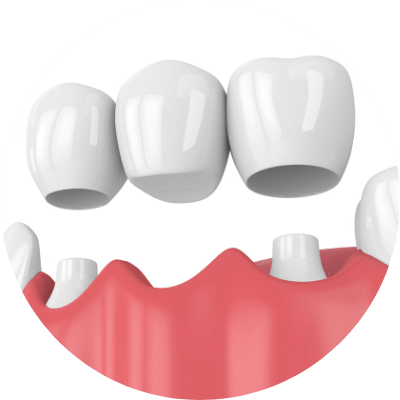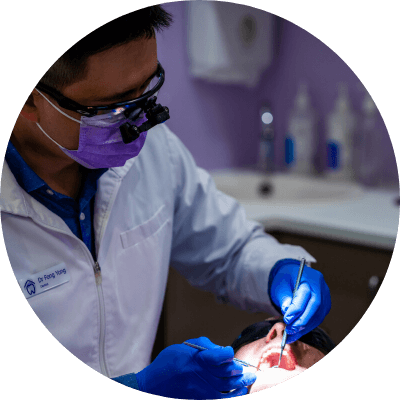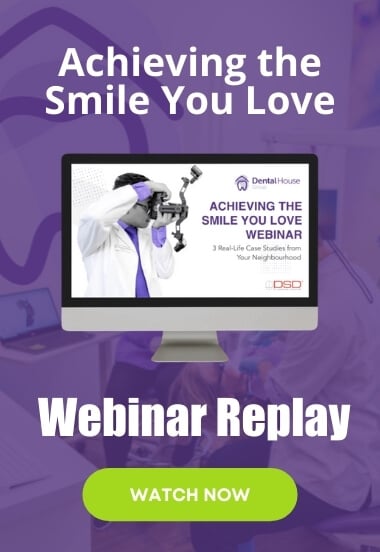Do Dentists Exaggerate Oral Issues?
Do Dentists Exaggerate Oral Issues?

When a dentist diagnoses cavities or gum disease, the personal failure that can be triggered can be profound. The self-blame for not having the courage to attend to regular appointments; the hot avalanche of financial pressure. With the dread of dental procedures for many, there’s rarity in a second opinion because mostly, we just want to get it over and done with.
In its curious isolation from the larger healthcare system, the management of oral wellbeing is complicated by the unfortunate and illogical reality that when evidence based policies are implemented, dentistry is rarely included in the equation. As a profession, it is yet to apply the same self-scrutiny as medicine and there is less emphasis on science and research. The Eleventh Commandment, ‘Thou shalt attend twice-yearly dental appointments’ is so ingrained and so unquestioned it’s implicit with empirical truth.
And yet there is none.
This industry standard is not based on scientific findings. It may not even be the ideal timeframe for most people. It is based on the marketing genius of one Claude C. Hopkins in the 1930s.
One of American advertising’s greatest copywriters, Hopkins (1866-1932) was of the staunch belief that advertising existed for no other reason than to sell things, and that the produced results were its justification and measure. He convinced millions of women to use Palmolive soap on the basis that Cleopatra had – despite the hysterical nature of this historical claim. Anyone familiar with the ‘Mad Men’ series that ran from 2007 to 2015 may recall Don Draper’s Lucky Strike cigarette campaign “It’s toasted” as a differentiation – when all tobacco was subject to this process.
That, was straight from Claude C. Hopkins’ playbook of taking the ordinary attributes of similar products and asserting them as exclusive.
It was part of his creation of a new paradigm in advertising, and its principles have endured for more than a century. “The product itself should be its own best salesman,” he said, “not the product alone, but the product plus a mental impression, an atmosphere, which you place around it.”
Thus the 1930s advertising campaign for a minty, frothy toothpaste – ‘Pepsodent’ – in an era when nobody really brushed their teeth. Despite the relatively prosperous turn of the 20th century, America was a nation of cavity-filled mouths and missing teeth. In fact it was so bad, the U.S. Army declared poor dental hygiene a national security risk because so many World War I draftees had rotting teeth. The oral hygiene we take for granted now is thanks to the campaign Hopkins devised to have people change their habits.
He wanted to sell the Pepsodent product and to do that, he had to persuade people to brush their teeth every day.
Hopkins did his research, and referenced plaque; that it was a film, what it felt like, that it stripped teeth of their whiteness and connected the idea and sensation of having clean teeth to beauty.
The key was repetition. It was something you not only needed to do every day, but twice – for a quick and relatively inexpensive way to improve yourself.
The campaign was such an immediate success, suppliers couldn’t keep up with demand. A decade later, 65% of the American population regularly brushed their teeth and Pepsodent became one of the best-selling toothpastes for more than 30 years. By the time the U.S. Army began recruiting for World War II, there were no longer concerns about the oral health of young men.

That is how the twice-yearly dental appointment came about; from an advertising campaign more than eighty years ago. Within that time, it has become so accepted as fact that the insurance industry has embraced it and cover only two check-ups and professional cleans a year, regardless of genetics, diet, and oral care habits.
For some, gum disease or periodontal issues mean that dental appointments every 3-4 months is ideally what’s required; and an increasing number of oral care professionals are now acknowledging that for an adult with inherently good teeth and proper oral hygiene habits need only to see their dentist once every 12-16 months.
Somehow, that really doesn’t sit well, does it…
Putting recent innovations and cosmetic treatments aside, many standard dental procedures are not necessarily well substantiated by meticulous clinical trials.
Cochrane is an organisation consisting of close to eight thousand Systematic Reviews of health decisions from all over the world. It plays a key role in developing new evidence-based methods and makes its findings accessible, usable, and available to all via the Cochrane Library. Since 1999, this highly respected intermediary has conducted reviews of oral health studies.
Its reviews analyse the scientific literature of specific interventions commonly practiced by dentists, orthodontists and other oral specialists with a focus on the most rigorous studies and research. Sometimes, procedures are found to be clearly justified; for example, dental sealants. These liquid plastics that seal the pits and grooves of teeth have no known risks and reduce instances of tooth decay in children. However, they are not widely used – despite the advantages – seemingly because the simple use of this cost effective solution precludes further and more expensive dental treatments.
Something else that really doesn’t sit well.
One of two dismaying conclusions are generally reached in the Cochrane reviews: a failure of the available evidence to support the presupposed benefits; or insufficient research and data to substantiate anything. While water fluoridation appears to help combat cavities in children, there is no confirmation that it does the same for adults. Data that suggests regular flossing reduces the opportunity for gum disease has only very feeble and unreliable evidence that it removes plaque. When researchers sought to determine the value of replacing amalgam fillings with tooth-coloured resin little medical justification could be found, and there is such limited information on whether a root canal is more beneficially repaired with a filling or a crown, there is no reasonable conclusion.
The American Association of Endodontists purports that a root canal procedure is “quick, comfortable…and very similar to a routine filling.” The reality is that it is an operation that often causes considerable discomfort that happens over a number of appointments and is generally ten times more costly. According to a 2009 study involving 71% of all Australian Endodontists, the philosophy, rationale and preference in terms of root canal therapy showed overwhelming partiality for multiple appointments over single-visit treatments regardless of oral biology. It revealed operator preference over patient considerations as the primary determinant.
It all seems such troubling news. That we could all have great teeth and gums with fewer, and less frequent dental appointments. That it’s useful to view oral healthcare professionals with systematic doubt.
In the realm of dentistry, the idea of duplicity for profit sits as uneasily as a medieval minstrel in the barber surgeon’s chair, silently constructing a ballad of leeches, limbs and loose teeth as a distraction from the steel-balled forceps before him for smashing offending gnashers. Some were honest and deftly skilled tradesmen; others charlatans and swindlers prone to using dubious concoctions, and removing chunks of jawbone as they wrenched out numerous teeth.
There is dishonesty and incompetence in all professions. From priests and politicians to police and party planners it all comes down to trust. Which is what makes communication between you and your dentist so important.
If you don’t understand the dentalese, say so. If you want to know if there are alternatives to the suggested procedure, ask. If you’re concerned about risks, side effects, or cost, speak up.
And if you’re dissatisfied with the response, stand up, walk out and find yourself a dentist attuned to you and your needs.
After all, it’s with no exaggeration that it’s you putting your money where your mouth is.
DISCLAIMER:
The content has been made available for informational and educational purposes only. New Gisborne Dental House does not make any representation or warranties with respect to the accuracy, applicability, fitness, or completeness of the content.
The content is not intended to be a substitute for professional personal diagnosis or treatment. Always seek the advice of your dentist or another qualified health provider with any questions you may have regarding a dental or medical condition. Never disregard professional advice or delay seeking it because of something you have read or seen on the Site.
















